It was a strong reading month for me: a few 5-star reads, an inordinate amount of historical fiction (that worked for me!), and plenty of fascinating ideas and concepts to explore. Let’s get right to those reviews!
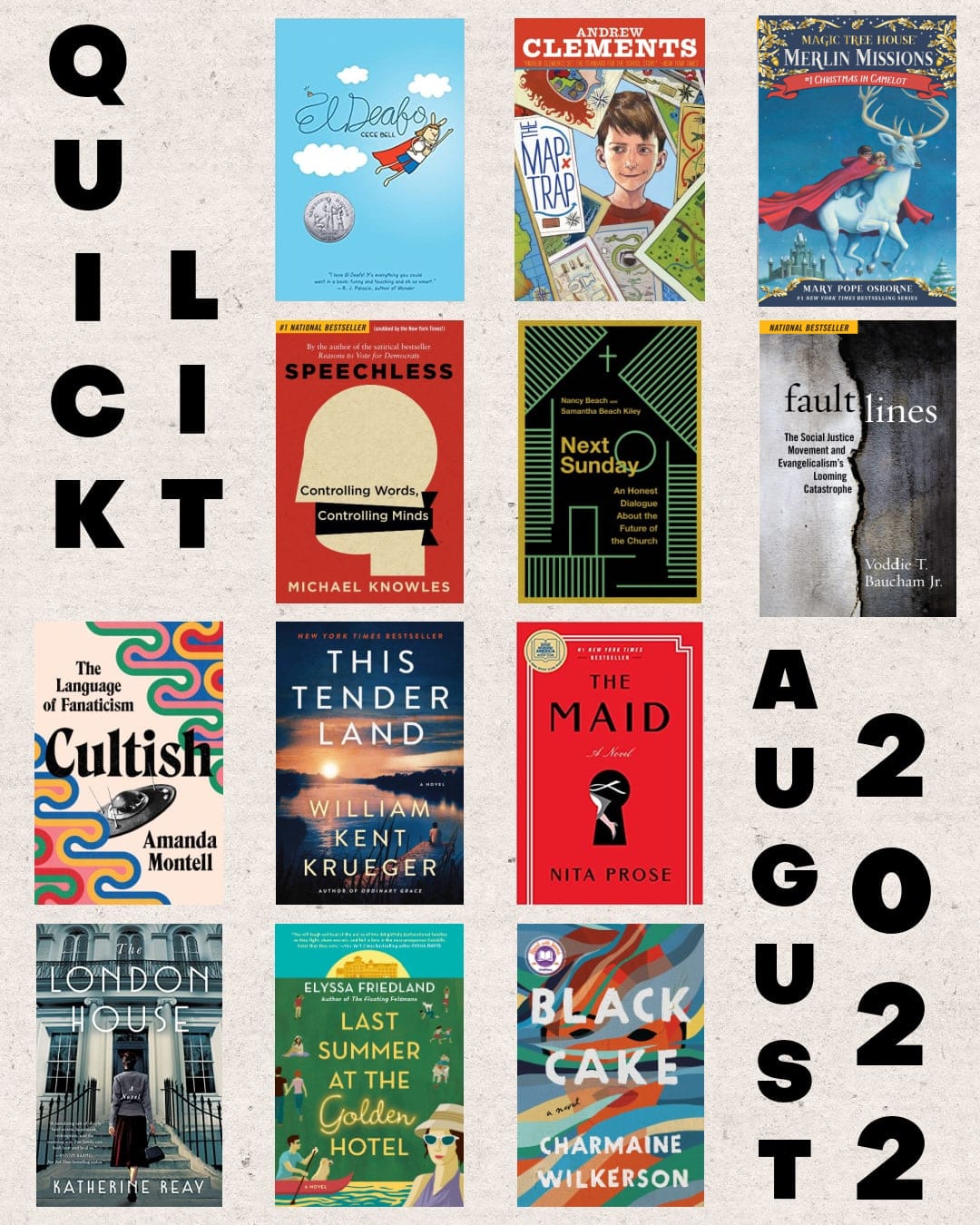
MIDDLE GRADE
El Deafo, by Cece Bell: Cece lost her hearing at four after a bout with meningitis. Though she quickly adjusted to her hearing aids and using lip reading to understand others’ speech, adjusting to school and social life has proven a little harder. We join Cece through her elementary years as she makes and loses friends, struggles with loneliness and feeling different, gains a better understanding of her strengths and limitations, and navigates the harder parts by stepping into her alter ego as El Deafo, whose Phonic Ear is the key to hearing all (and possibly even the key to making that coveted best friend).
This book has been on my radar for years and I’ve heard from many readers (including many non-graphic novel readers) who adore this story. Now I know why! Cece is a wonderful character: self-aware, brave, unique in her differences and yet not unlike every young child who wants to fit in and doesn’t always know how. The story is autobiographical, and the author uses the format to inform readers about the experience of being hearing impaired. I learned a LOT from this book, about the physical and social implications of a hearing limitation and also about the best ways to interact with individuals who share Cece’s “super power.”
I love that this book offers children with disabilities an opportunity to see themselves on the page in a way that is positive, realistic, and empowering—acknowledging the challenges of a physical impairment while still seeking (and discovering) a vibrant social life and academic success. Cece is a great role model! But this isn’t just a book for kids like Cece; ALL children will enjoy Cece’s journey that is about so much more than her physical limitations. They will relate to the challenges of fitting in and will be given helpful examples of how to interact with kids who might be different from them—not “othering” or bullying them, and making necessary accommodations while not making those differences a focal point or stumbling block within the relationship. Books like these are so helpful in showing us all how to flourish in settings where not everyone is like us (i.e., EVERY setting).
As much as I enjoyed this book that is funny and endearing and informative and pretty much all that I want from a middle grade book, I’ll admit that I didn’t care for the illustration style. The characters are portrayed as rabbits, which probably is best for this audience and makes the harder parts of Cece’s journey easier to navigate for young readers, but as an adult I just didn’t love this. Still, this is such a special book and one I’ll be happy to read with my kids when they get a little older. (Due to some mild language and suggestive situations, I’d recommend this for 10 and up.)
I so appreciated the Author’s Note that explains more about deaf culture and how the author’s experiences do and don’t reflect those of other individuals with hearing impairment. Bell is clear that this is her story, and not meant to represent ALL who share her limitations, and she provides some information on other ways that deafness is experienced.
My Rating: 4.5 Stars (Rounded to 5 Stars on Goodreads) // Book Format: Kindle
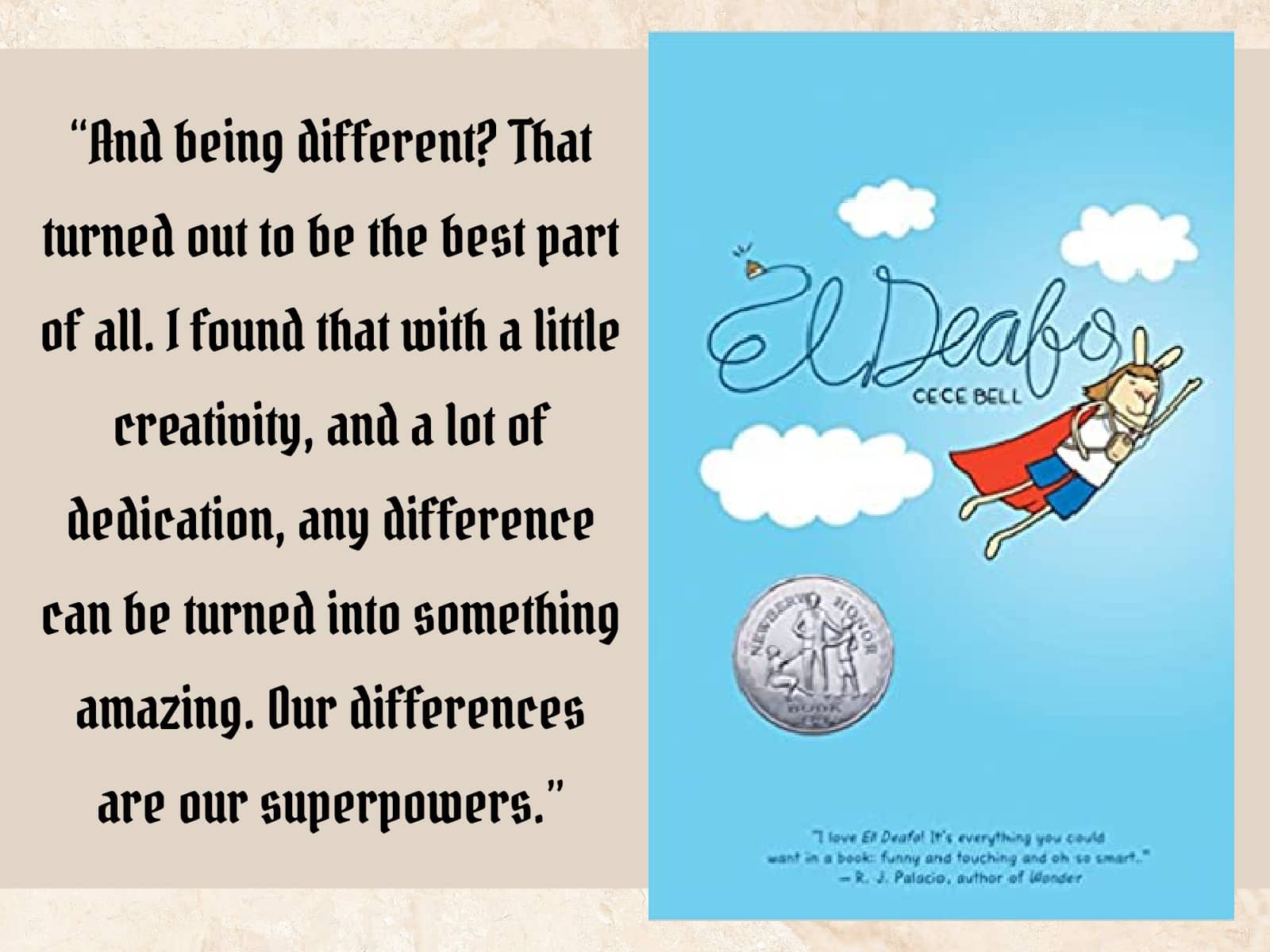
The Map Trap, by Andrew Clements: Sixth-grader Alton Barnes has always loved maps, ever since his parents pulled his name from the map in a glove compartment on their way to the hospital where he was born. His cartography love isn’t reserved for geographical maps (though he’s crazy about those too); he also loves to make maps and charts of everything he sees, from the brain composition of his teachers and classmates, to the scents found around campus, to the clothing preferences of the kids at his school. Alton’s mapmaking is a personal endeavor, until one day when his folder of Top Secret (potentially offensive) maps goes missing. Alton MUST reclaim his maps before the entire school learns about them and many feelings (not to mention his own reputation) are destroyed.
What a unique premise for a novel! I adored Alton and his love of maps and was fascinated by the various types of maps and charts described in the book. There is a fun mystery at the book’s center, but beyond that, this is a story of friendship, of overcoming the assumptions we make about others, of the power of honesty and kindness, and of leaning into our passions and strengths while allowing others to do the same. I love that the virtue of owning one’s mistakes (especially when those mistakes have the potential to harm others) is upheld. There is also a very fun twist involving Alton’s teacher that I didn’t see coming; having once been a young, naïve teacher myself, the inclusion of a first-year teacher and her relationship to her students was fun to see.
Charleston really enjoyed this book as well and we are looking forward to reading more of Andrew Clements’ books together in the future. We are also excited to try our hands at some mapmaking of our own. Thanks, Alton, for the inspiration!
My Rating: 4.5 Stars (Rounded to 5 Stars on Goodreads) // Charleston’s Rating: 4.25 Stars // Book Format: Print
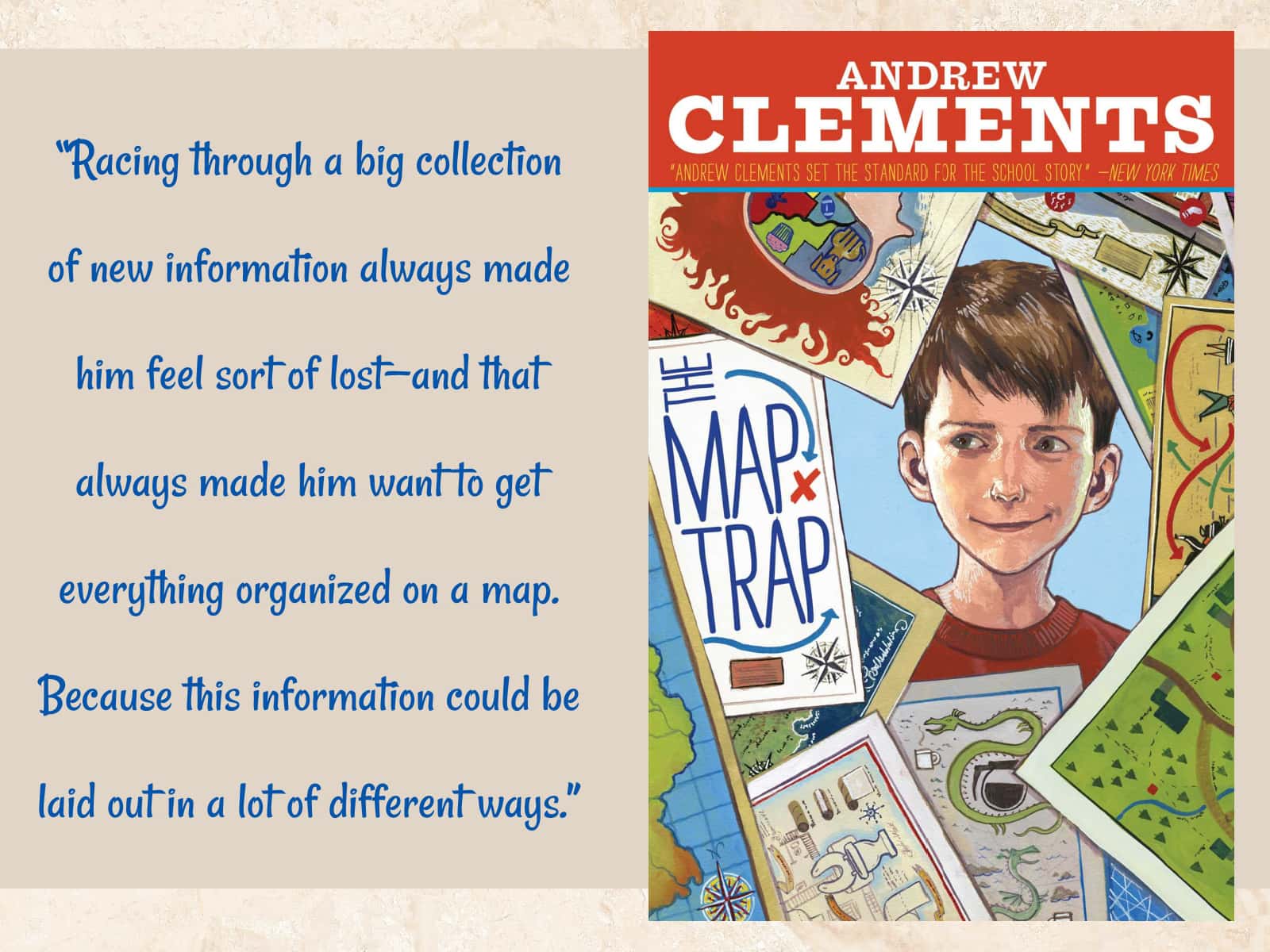
Christmas in Camelot, by Mary Pope Osborn: This is the first of the Merlin Mission books from the Magic Tree House series: these Merlin books are more challenging than those in the original series, and they’re rooted in fantasy rather than history. The story begins when Jack and Annie are transported to Camelot at Christmas Time. Upon their arrival they find Camelot much changed from their last visit: the future of Camelot is in jeopardy, and even Camelot’s greatest knights have failed to save the land. With King Arthur having banned all use of magic, the children are Camelot’s only hope, and Jack and Annie accept the challenge to preserve Camelot and all it has to offer the world.
I read this at Charleston’s request, as he’s been plowing through the Magic Treehouse series on his own and wanted to do a book club of sorts, with each of us reading the book separately and coming together afterwards to discuss. How could I say no to that?! While I do like the Magic Treehouse books, this wasn’t my favorite in the series; I find I like the history-based books a little more. This is a fun adventure, though, with lots of magic and factoids about Camelot sprinkled in. I see why Charleston is enjoying these Merlin Missions that contain fun riddles to solve and a little more character development than the earlier books.
My Book Rating: 3.5 Stars (Rounded to 3 Stars on Goodreads) // Charleston’s Rating: 4 Stars // Book Format: Print
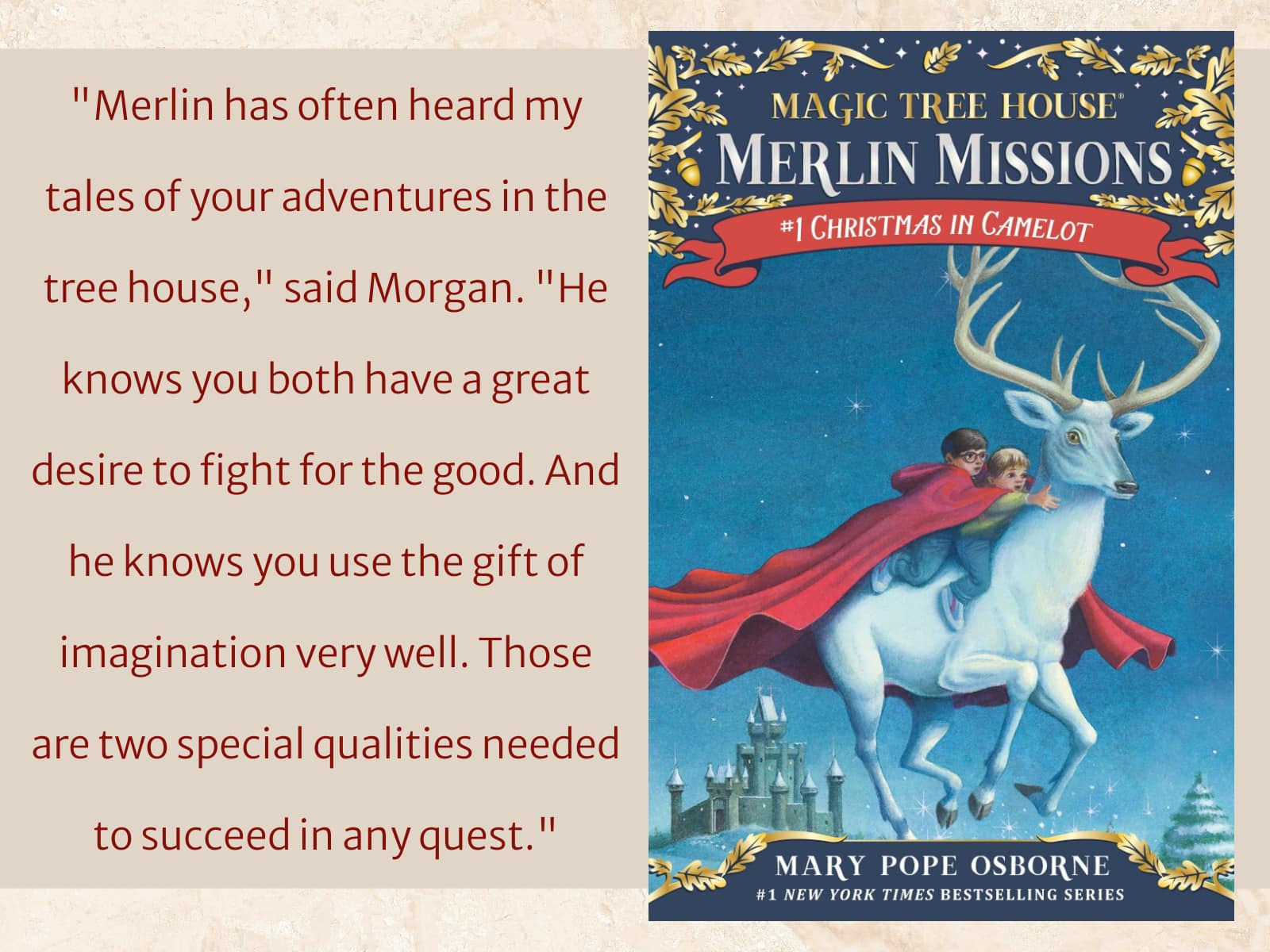
NONFICTION
Fault Lines: The Social Justice Movement and Evangelicalism’s Looming Catastrophe, by Voddie T. Baucham: Matters of race have dominated headlines since the summer of 2020, when the death of George Floyd and subsequent riots shocked our nation and social justice became THE conversation, with everyone from liberal media to conservative pastors espousing messages of racial reconciliation. What many well-meaning Christians (myself included) did not realize was how much more was going on beneath the Black Lives Matter conversation. In this eye-opening book, black pastor and professor Voddie Baucham exposes the fault lines rippling beneath the surface of this issue that is threatening to tear the American church apart.
When I read John McWhorter’s Woke Racism last year, I was intrigued by its portrayal of “woke-ism” as a secular religion/cult, and appreciative of a refreshingly different take on the BLM issue. At the time I wished the same book existed from a Christian perspective; this is that book. Like McWhorter, Baucham equates BLM to a cult and uses statistics and stories to expose the ways this backwards racism is harming the black community. Baucham goes a step further to demonstrate how social justice is harming Christians and how the Critical Race Theory worldview behind the movement is antithetical to the Gospel. Finally, he points readers to what he feels is the appropriate approach to social justice: one that will bring healing and truth back to the Church.
This is such a sensitive topic and not one I enter lightly; to that end, it is a subject I appreciate learning about from someone “in the trenches,” so to speak—a person of color, who has personally experienced racism from the inside, and a scholar who is aware of the sociological and political and religious history of all that is going on. I hate that this issue has caused so much division within the church, and part of me worries that books such as this one may be adding fuel to the divisive fires. However, the content here is mostly a response to fires already begun and I am glad for the balance that voices like Baucham bring to the conversation. It was hard to see Bauchman call out many well-known, trusted faith leaders for getting it wrong on this issue, and I do feel this could have been handled more tactfully, but I cannot object to the truth Baucham presents or fault him for the frustration he must feel for having been gaslit by many (largely) white individuals who discredit his take.
I’m thankful to Baucham and other brave individuals like him who have taken the unpopular path in redirecting attention from unBiblical ideologies to the heart of the Gospel. Even those who don’t agree with Baucham on every point (I don’t) will benefit from his thoughtful and rational perspective as we unite as Christians to pursue God’s truth and His will for the modern Church.
My Rating: 4.25 Stars // Book Format: Audiobook
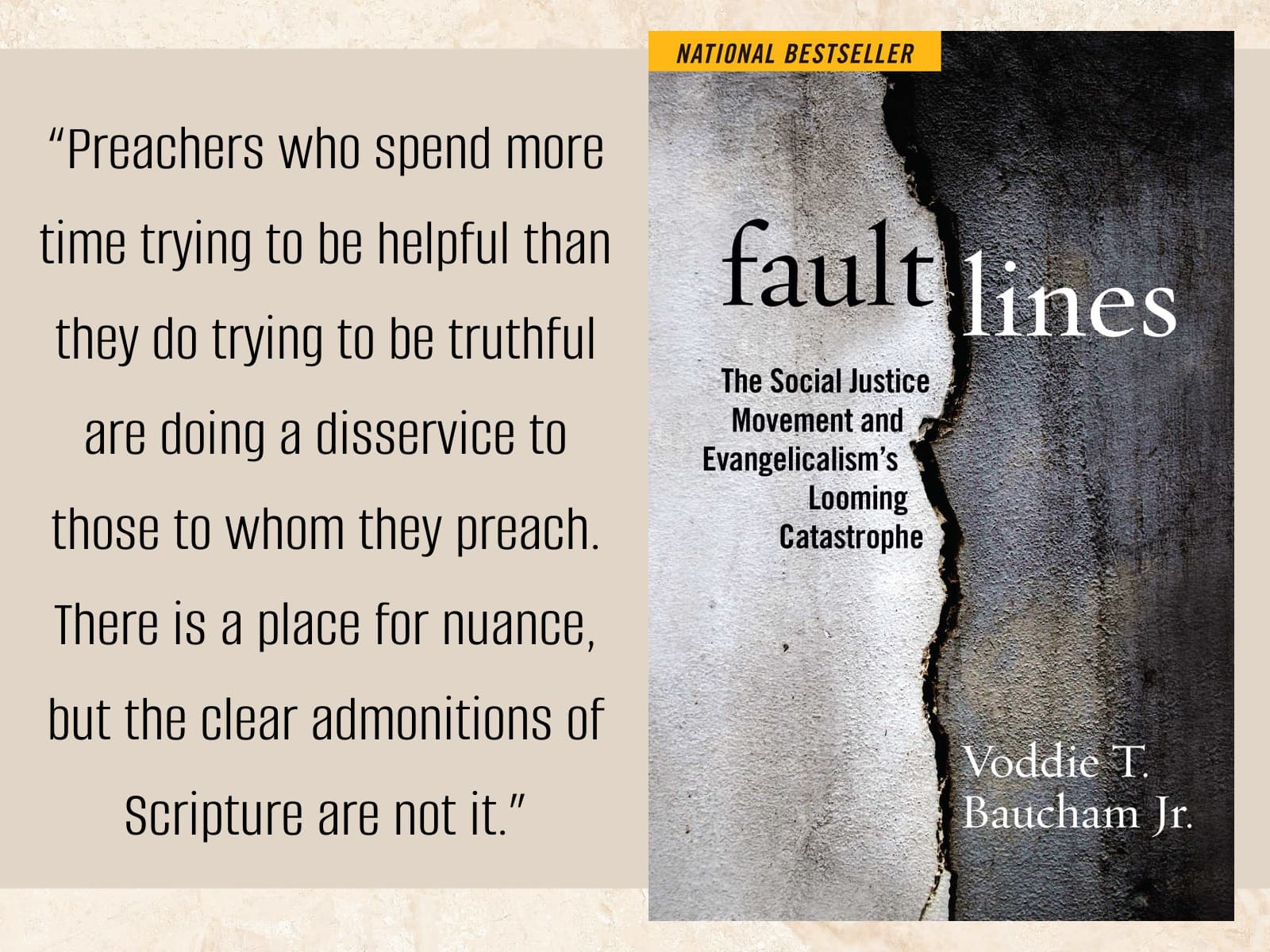
Next Sunday: An Honest Discussion About the Future of the Church, by Nancy Beach and Samantha Beach Kiley: Anyone within the Christian church (and likely many non-churchgoers as well) is aware of the reckoning that has taken place in the past decade. From the exposing of leadership forthcomings and systemic racism, to Covid-related debates, to the virtual vs in-person conundrum, and so much more, churches are struggling, with leadership and parishioners questioning much about the how and why of the institution and especially what it can and should look like—now and into the future.
Nancy Beach and her daughter Samantha Beach Kiley are definitely familiar with church challenges, having been involved in ministry at Willow Creek Church and witnessed (and even been part of) the falling out that occurred there in recent years. In this book, Nancy (a Boomer) shares her history with ministry and church in the 80s and 90s, while Samantha (a Millennial) offers her perspective having grown up in a megachurch and now moved on to a new model of worship. The duo discusses various aspects being debated today, from how to build genuine community and promote inclusion, to having a missional vs attractional model, and how to navigate dicy cultural issues like racism and misogyny and homosexuality. Both authors still call themselves followers of Jesus, but come to this book following deep church woundings that are leading them to rethink everything they knew about church and their best ideas for healthy, Christ-centered churches.
I really appreciated the multigenerational aspect of the book, and while I resonated more with Nancy’s “old fashioned” ideas about effective ministry, and less with Samantha’s seeming eagerness to do away with church altogether and disparaging of a church upbringing VERY similar to my own, it was helpful to hear their stories of what they’ve seen work, what hasn’t, and how things can improve. I especially resonated with their ideas about how to foster authentic community, as this has been a pain point I have personally experienced in my years as a faithful churchgoer. I was much less on board with their progressive theology; while I’m willing to reconsider the logistics of Sunday morning, I hold firmly to a traditional view of Scripture and was frustrated by the authors’ dismissal of Biblical values in the interest of appealing to a broader demographic.
If you spend much time following present-day church leadership/culture, the stories and ideas presented here won’t be anything new. However, as a quick and relevant read, many in ministry may benefit from this title that provides a good launching point for discussion of topics churches need to be grappling with.
My Rating: 3 Stars // Book Format: Audiobook
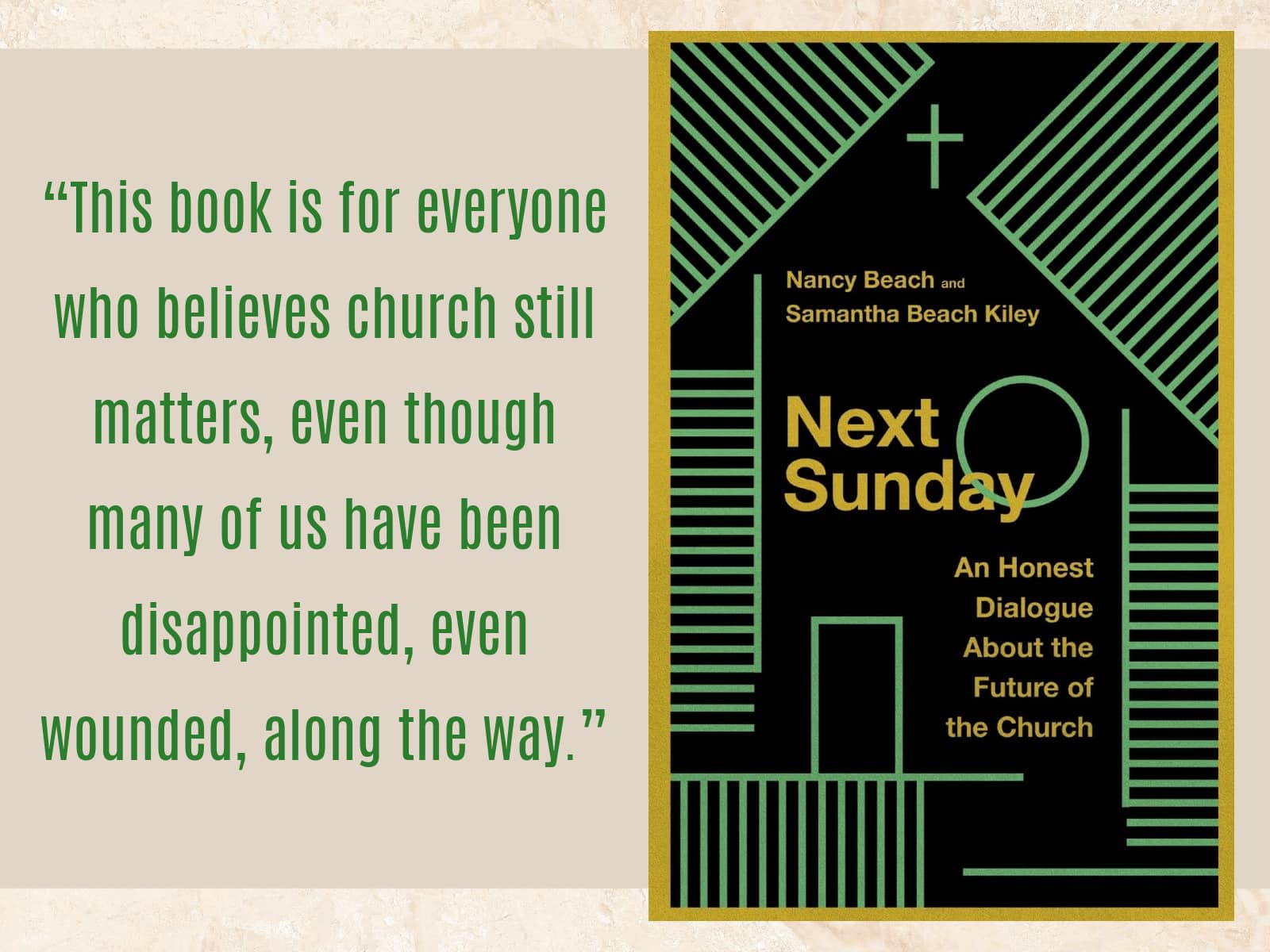
Speechless: Controlling Words, Controlling Minds, by Michael Knowles: Speech is a blisteringly hot topic these days: both progressives and conservatives alike recognize its power, but there are seemingly irreconcilable views on what types of speech should be allowed, what speech is most harmful or helpful, and how speech should be monitored in the public square. In Speechless, Conservative commentator Michael Knowles takes on both the political Left AND the Right, outlining where the Left has succeeded in redefining (and, in his view, destroying) liberty and virtue, while the Right’s efforts at resistance have simply played into Leftists’ strategies and furthered our cultural demise.
This is not a long book but it covers a lot of ground. Knowles looks at historical and present-day examples and studies to explore the nature and meaning of language and liberty, the rise of political correctness, and how this shift plays into such issues as Critical Race Theory, religious holidays, the LGBTQ movement, Covid lockdowns, climate change, and much more. This book will offend many readers—both Progressives for its harsh stance against their platforms and Conservatives for their misguided response and complicity. But regardless of where you stand on the political spectrum, there is much here to consider about the current state of our nation and all of society when it comes to our values and our future.
Though I was uncomfortable with the inflammatory rhetoric and polarized stance of the book, I appreciated Knowles’ straightforward approach, his willingness to speak truth to cultural taboos, and his clear and concise definitions of terms and ideas that have been obscured by political pandering. While I’ve always considered myself a Conservative, Knowles helped me see how I have fallen into the trap of prioritizing Classical Liberalist ideology (namely free speech at all cost) over genuine Conservative values. The book opened my eyes to some of the harm done by that approach, and how compromising with freedom absolutists can have hugely harmful implications.
While my intended approach differs from Knowles’ suggestions, it was valuable to get a clearer view of genuine Conservatism and see where my efforts and loyalties should lie. As with many political books, I also left this one feeling thankful for my reliance on a God and a faith who is so much bigger than these unsavory political issues!
My Rating: 4 Stars // Book Format: Audiobook
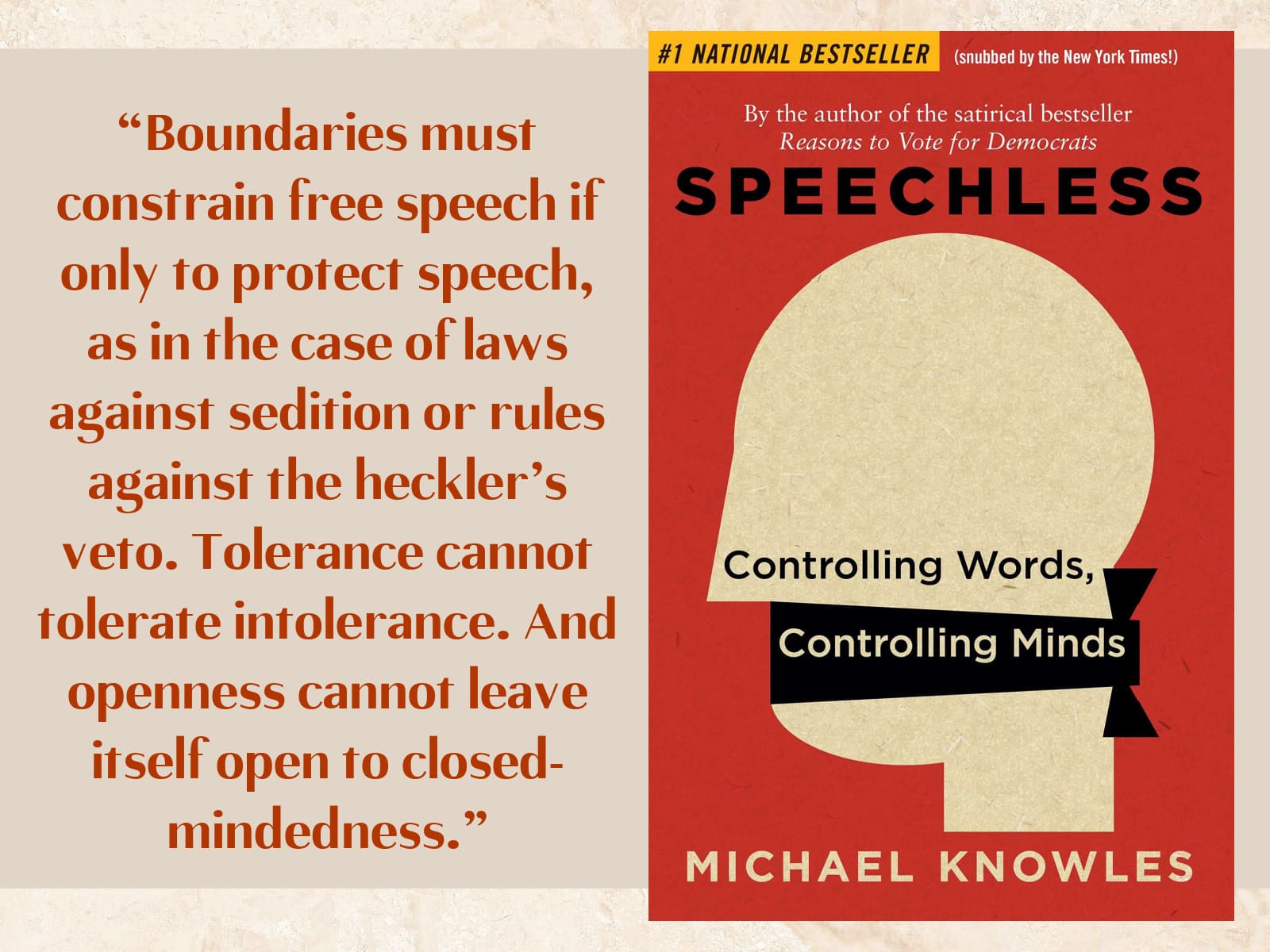
Cultish: The Language of Fanaticism, by Amanda Montell: If you’ve ever spent time in an unfamiliar environment with a strong culture or identity—whether that’s a work place or club, religious group or hobbyist organization—you’ve witnessed that strange phenomena that is “group lingo.” We may not be aware of it when we are immersed in it ourselves, but it’s easily recognizable to outsiders. Sometimes this lingo is benign and simply contributes to group identity and cohesion; but sometimes that language can get frightfully coercive. What distinguishes “normal” semantics from cultish language? How can we identify cult speak, and what makes us so susceptible to this fanatical language? These are just a few of the questions linguist Amanda Montell sets out to answer in this book.
Through salacious storytelling (including some of her own anecdotes and interviews with ex cult members) and research, Montell exposes the ins and outs of cults, including some we KNOW to be cults like Jonestown and Scientology, to groups that veer dangerously into cultish territory such as pyramid schemes, fitness movements, and social media gurus. I found the chapter on MLMs particularly intriguing, though it gave me frightening flashbacks to my own close call with becoming an Amway recruit. (I don’t know that I would have believed some of the author’s stories if I hadn’t nearly fallen prey to the cultish allure myself)!
Unfortunately this book didn’t flesh out its premise as I had hoped. The biggest disappointment is that it focuses far more on cults themselves than on their language habits; the book would have benefitted from a more in-depth look at linguistics and sociological behavior and less meant-to-shock details about diet programs and suicide pacts. The “research” here is very surface level and the conversational, gossipy tone read too casual for the heavy topic at hand. I was particularly disappointed by the author’s painting of religious organizations and other groups with such a broad brush; Montell portrays ALL religions in an unfairly negative light, attributing to maliciousness and herd mentality what can easily be explained by genuine passion and effective community-building tactics. Ultimately this makes for a juicy exposé but is far from the academic tome I expected.
My Rating: 3.25 Stars // Book Format: Audiobook
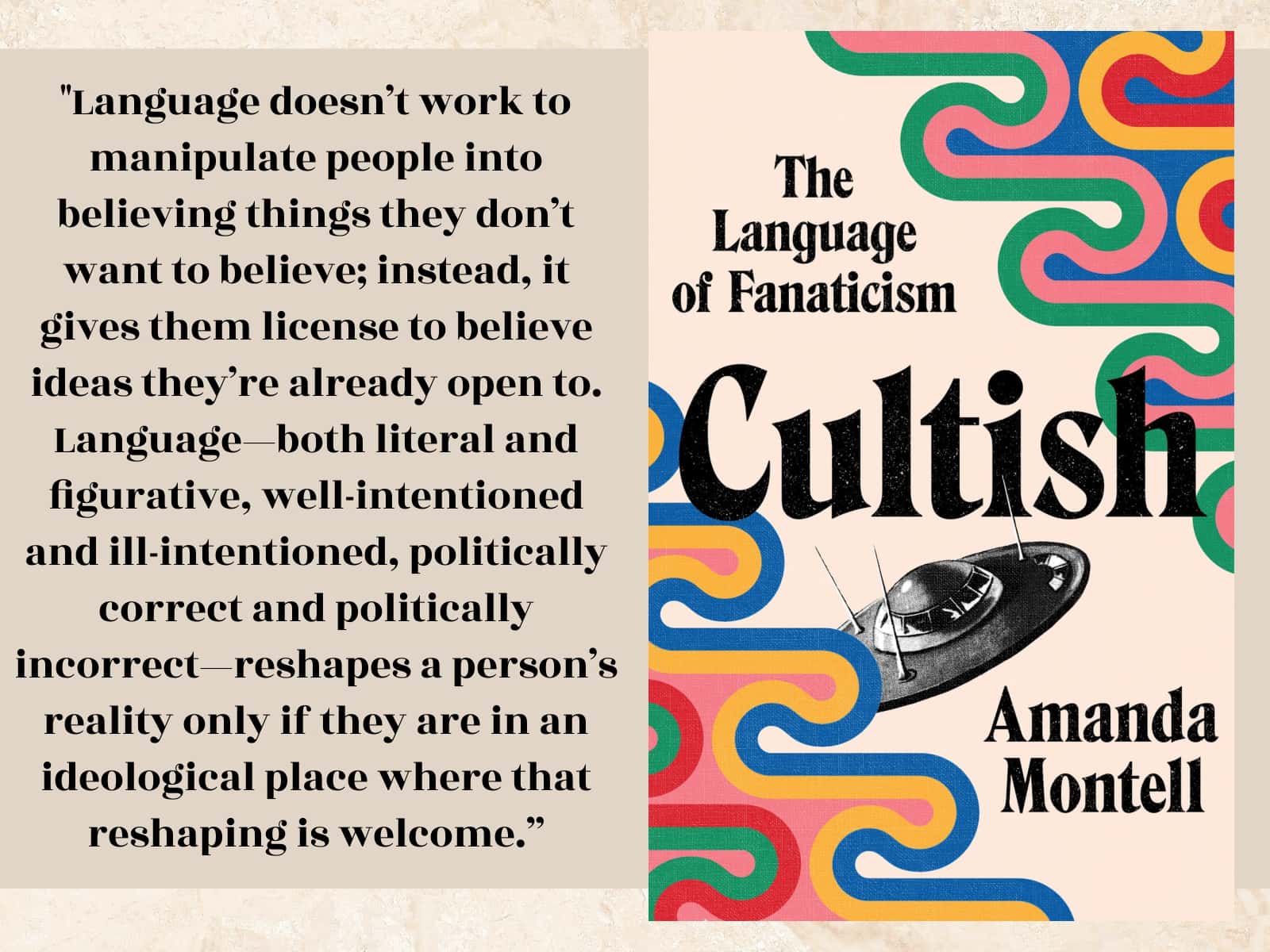
FICTION
Last Summer at the Golden Hotel, by Elyssa Friedland: For more than sixty years, the Goldman and Weingold families presided over the glamorous Golden Hotel, gem of the Catskills. Over the years, the once hot resort has lost its sheen and now, as the establishment crumbles around them, the families have gathered at the hotel for one final summer to decide whether or not to sell their once-prized property.
Three generations of Goldmans and Weingolds are weighing in on the decision, all with their own motives for selling or keeping. There’s Aimee, who just discovered after thirty years of marriage that her posh lifestyle has been funded by her husband’s drug pedaling; Michael, whose closeted homosexuality is sure to upset his traditional grandparents; Brian, whose life never played out like he hoped and who perhaps has the most to lose if the hotel is sold; Louise, who mourns her husband’s death and longs to preserve his legacy; and many spouses and children who seemingly care nothing for the hotel, but have been shaped by it just the same and may be less than eager to let it go. Tensions mount as long-buried secrets come to light, new dramas unfold, and secret romances bloom—all while the question remains, will this really be the last grand summer at the Golden Hotel?
This is not a substantive read, but it IS fun and frothy, a present-day Modern Mrs. Maisel with its summery resort setting, dry humor, and delightfully Jewish vibe. The characters are flawed but mostly likable, growing more so as their secrets are exposed and we come to understand their motivations and feelings. I was drawn to the sweet family dynamics and the way these parents care for their children in ways not always appreciated but very much coming from a place of care. I also liked the family-friend element—two families functioning as one, but with their separate sets of problems, all messily overlapping and making for some fun/surprising connections.
I really enjoyed the atmospheric setting and gossipy tone that felt fresh yet comfortable. While some elements of the story were not to my taste (namely those relating to infidelity and “do what feels good” motivations), and the adolescent behavior of young adult characters REALLY bugged me, I was happy about the many happy endings and loved “shocking” revelations that actually painted characters in a MORE positive light (so opposite of what I’m used to in this sort of novel; it was nice to see the scandal trope flipped on its head). This is more lighthearted than my typical fare, but just what I wanted to be listening to over the Fourth of July weekend. Audio narration by Julia Whelan was, as expected, superb.
My Rating: 4 Stars // Book Format: Audiobook (followed along in print, helpful for keeping characters straight)
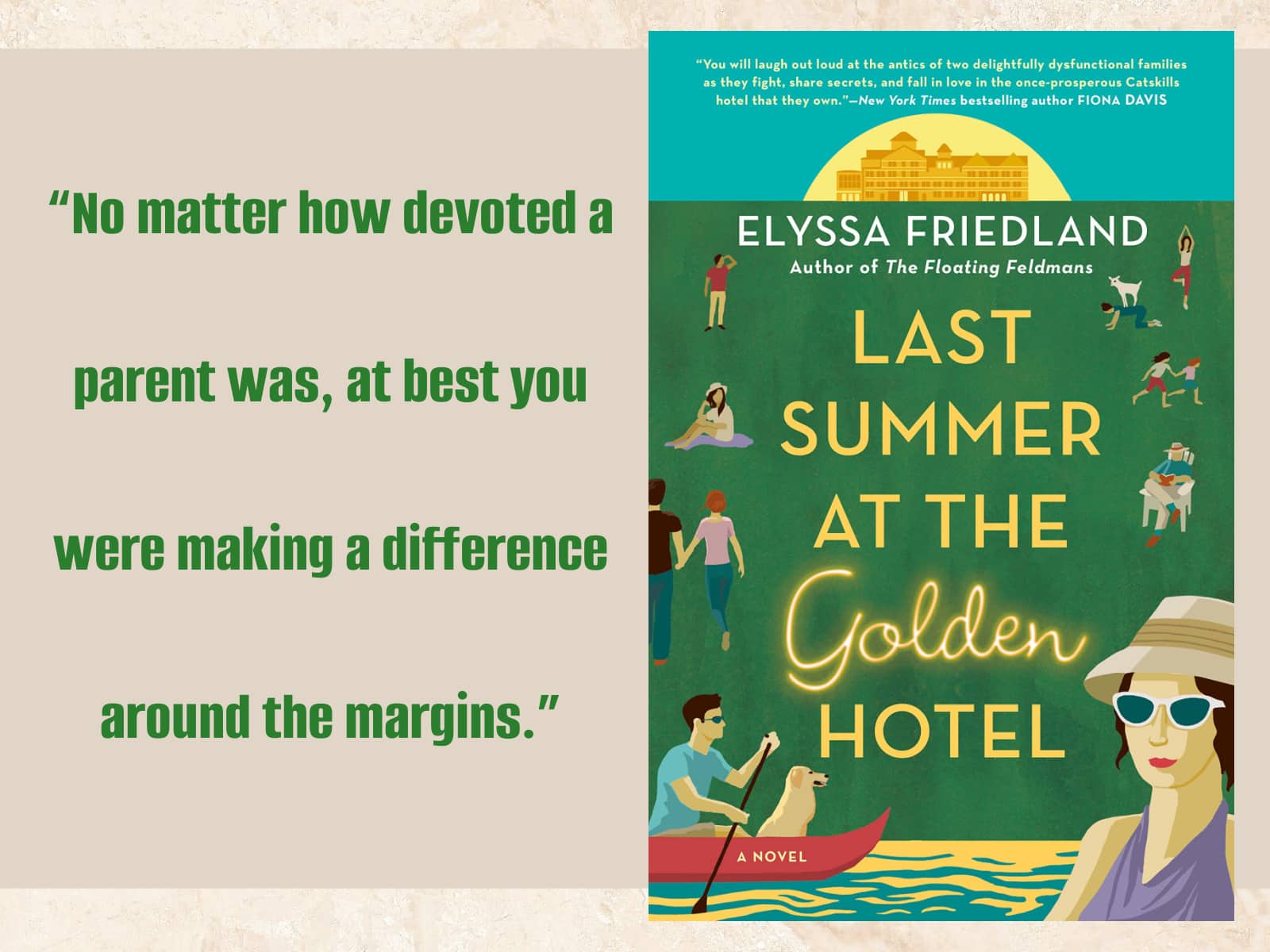
This Tender Land, by William Kent Krueger: In the summer of 1932, Odie and his older brother Albert are residents of the Lincoln Indian Training School in Minnesota where they have lived since becoming orphans four years earlier. Their time at the school has been marked by cruelty and mistreatment, and when a tragic series of events forces them to flee the school, they are not sad to leave it behind. Albert and Odie are joined by their best friend, a mute Indian boy named Mose, and Emmy, the orphaned daughter of a former beloved teacher. Together the four vagabonds embark on a canoe ride down the Mississippi on a Huck Finn-like journey that winds its way into the lives of criminals, companions, con-artists, and other lost and searching souls. It is a summer of growth and change for each of the orphans whose innocence is abandoned even as their faith and loyalty expand.
I LOVED this atmospheric literary adventure story. The characters leapt off the page and into my heart; I rejoiced at their triumphs, wept over their hardships, and cheered them on as the encountered one obstacle after another. Even the peripheral characters are fully formed and weave in and out of the narrative in some very surprising ways.
There are suspenseful aspects to the story that kept me flying through the pages, only to be stopped in my tracks by a breathtaking turn of phrase or razor-sharp insight. Allusions to classic stories such as Huckleberry Finn, The Odyssey, and The Grapes of Wrath are woven into this novel that paints a hard but realistic picture of Depression-Era America and of the historic mistreatment of various people groups (most notably Native Americans). But the narration is far from pedantic: it is genuinely a good story, well told, but also one that made me think and feel and ponder.
Among other important themes (including found family, redemption, forgiveness, and the nature of storytelling) is a quest to understand God and faith. Odie grapples with his own beliefs throughout the story, and I enjoyed watching his faith shift and grow. This is not a “religious” book, but God’s presence here is inescapable. Some readers may take issue with the supernatural elements of the story, but this was one of my favorite aspects of the book. There are also some very hard subjects (abuse, alcoholism, racism, prostitution) that sensitive readers will want to be aware of, but I was impressed with Krueger’s restraint in these issues— their portrayal is realistic, but hardly salacious.
Between this book and Ordinary Grace, William Kent Krueger has earned this reader’s loyalty and I’m interested in reading more from him. I don’t know that I see the parallels to Where the Crawdads Sing being made by other reviewers, but this is definitely a great read-alike for fans of The Lincoln Highway: This Tender Land doesn’t have quite the wow factor of that spectacular novel, but it is another easy contender for a spot in my Top Five books of the year.
My Rating: 5 Stars // Book Format: Kindle
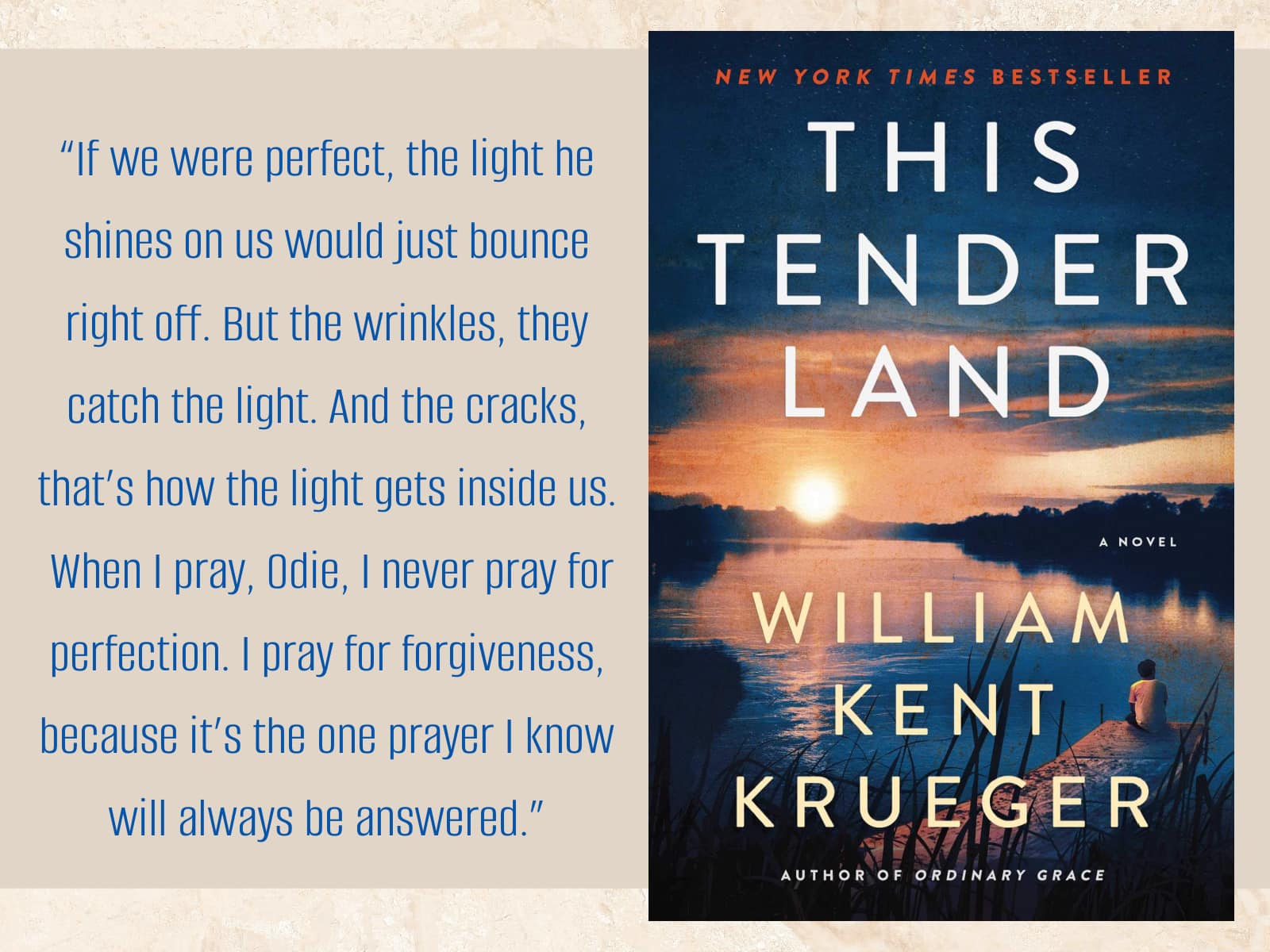
The Maid, by Nita Prose: Molly “The Maid” Gray is an expert at many things: restoring the rooms at the Regency Grand Hotel to a state of pristine perfection; modeling courtesy and kindness to all she encounters; remaining invisible in her workplace and nearly everywhere else; recalling episodes of Columbo and the tidbits of wisdom passed on by her beloved (deceased) grandmother. But Molly is not good at reading social cues, at seeing the world through the same lens as everyone else, at understanding what is expected of her in social situations, or of knowing who her true friends are.
When Molly is the first to discover the body of a wealthy hotel guest, she is uncertain of the protocol called for in such a situation. Her behavior is deemed suspicious by detectives, and Molly becomes the prime suspect. To exonerate herself, Molly must accept the kindness of unlikely friends who join her in solving this mystery before it’s too late.
I have to admit that I don’t understand how this book has gotten so much positive attention. The quaint whodunit at the story’s center holds some appeal, as does the character-driven nature of this genre mashup. But the prose is tedious and there are glaring plot holes and inconsistencies. The second half of the novel unravels at a snail’s pace, leading up to a predictable ending, with the one big twist coming much too late. The book has been marketed as a Cozy, yet the label is misleading: there is nothing cozy about the portrayal of trafficking, abuse, and illicit drug use, or the disorienting take on justice and morality and truth and the burden of invisibility—themes that are incompletely realized in some instances, and a tad too on-the-nose in others.
It’s true that Molly is an endearing character. There is something so charming about her old-fashioned mannerisms and the wisdom she retains from her grandmother. It is the presentation of Molly, though, that is my main struggle with this book. Molly is clearly on the autism spectrum, but this is never acknowledged—by Molly, or those around her; we quickly understand that she is different and quirky, but the lack of a straightforward label troubled me. The author’s treatment of this sweet character comes across as infantilizing, and I was uncomfortable with the Amelia Bedelia aspects to her speech and demeanor. Throughout the novel, Molly questions whether other characters are laughing with her or at her, and though I doubt this was the author’s intention, the book very much feels like it is poking fun at a character deserving of our compassion, but not our pity. In the conversation of cognitive divergence, Molly blurs the line between denigrating and empowering, and this fuzzy portrayal did not sit well with me.
I really wanted to like this, and I’ll admit to swooning over the ending (which kept this from being a 2-star read). I also liked the chance at seeing the world through Molly’s unique eyes; I just feel like this could have been presented differently. Ultimately, I can’t say I recommend this one.
My Rating: 3.25 Stars // Book Format: Kindle
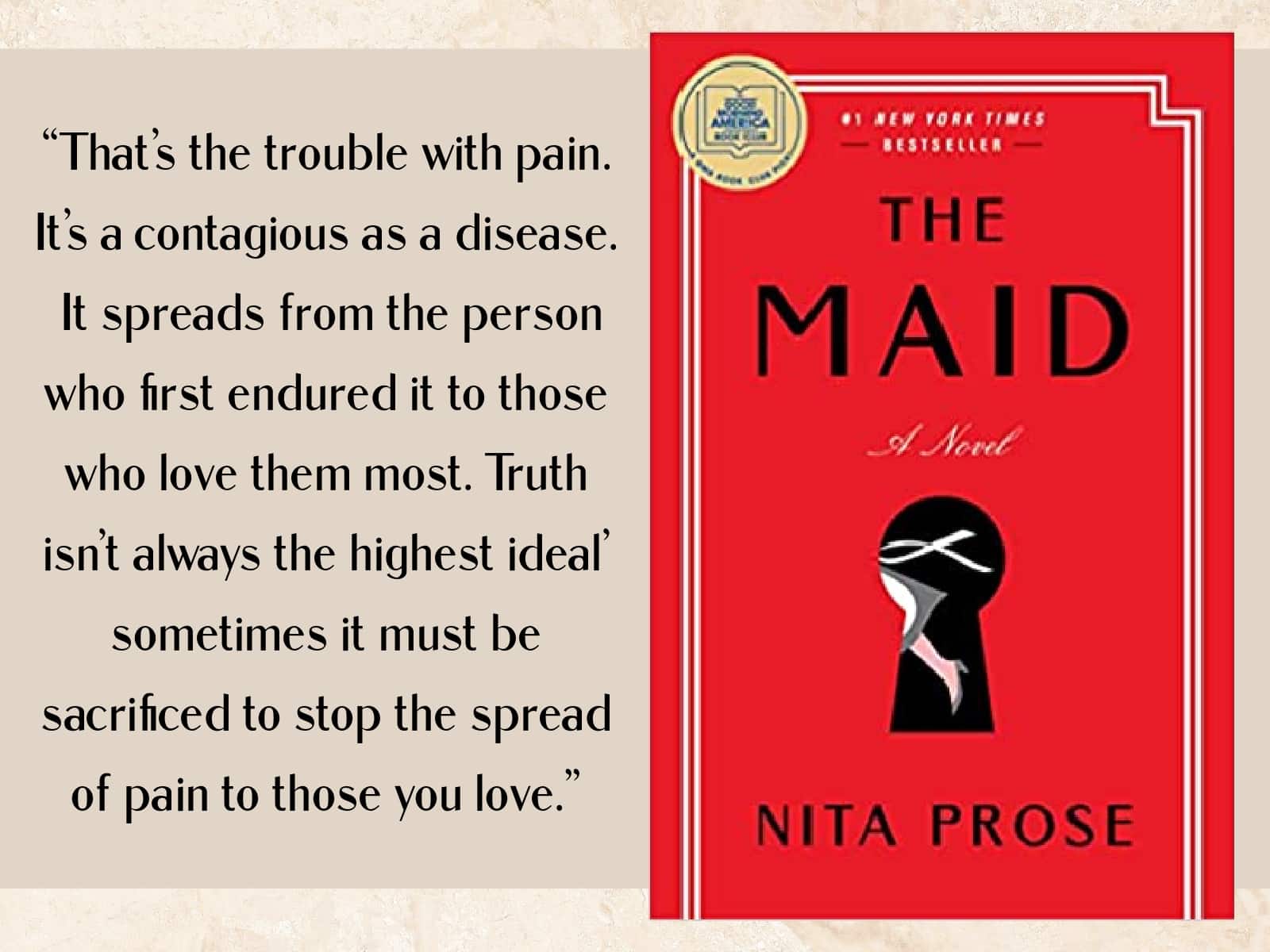
London House, by Katherine Reay: Caroline Payne has spent years trying to escape the past—both her own tragic one, and the darker and little-understood past of her family. But she is forced to confront her family history when Mat Hammond, a historian and Caroline’s old college friend, shows up at her office claiming to have uncovered scandal in Caroline’s family: according to Mat’s research, Caroline’s great-aunt Caro (Caroline’s namesake) betrayed her family in World War II to marry her German lover, leaving her twin sister Margo (Caroline’s grandmother) bereft. The betrayal would explain much of Caroline’s own cold upbringing, yet she has difficulty believing it could be true.
Hoping to disprove Mat’s claims and preserve her family’s reputation, Caroline flies to the family home in London to learn more. There, she immerses herself in the letters and diaries of her great-aunt and grandmother, learning about these inseparable sisters who grew apart in the years leading up to the Second World War. While Caro made a life for herself amid Paris’s fashion scene, Margo remained in London pining after the old flame who had fallen in love with her sister. Politics surrounding the War brought more secrets into their sisterhood and deepened the gap between them; clearly, both sisters were hurting, but was Caro really the traitor she appears to have been, or was there more to her story?
It’s been a while since I’ve felt the desire to read (yet another) WWII novel, but Katherine Reay is one of my favorite authors so I couldn’t pass this book up. London House, with its historical elements, is different from Reay’s other works but I really enjoyed it. In fact, I was much more invested in the historical storyline than the present-day one and loved the epistolary format of the sisters’ story, which is told entirely through Caro’s letters and Margo’s journals. I didn’t really care for the “investigatory” aspect of the novel as it added an unnecessary complexity to the story: Caroline reads these letters and journals out of order, uncovering clues in a manner that felt too complicated and didn’t really add to the already-intriguing historical plot. However, I loved how the story came together in the end and how it played into the present-day narrative.
The prose in this novel felt disjointed (or maybe just a little sloppy?) to me, almost as though sentences or paragraphs were accidentally omitted, and I didn’t find the main premise of a family haunted by its secrets very plausible, but the story is solid and I adored the themes of forgiveness, grief, courage, resilience, integrity, correcting misperceptions, and second chances. Throughout the novel Mat and Caroline debate the nature of history: how much of it is grounded in truth, and how much is rooted in our own perceptions? Does history change, or just our understanding of it? Are we able to escape the fallout of our own histories? And how much of the past is shaped by our present-day willingness to engage with or conceal what has come before? These are rich, important questions that Reay explores honestly and realistically, and I came away from the book viewing not just these characters’ stories a little differently, but my own.
Come to this book for the intrigue (woman spies! traitors! secret codes!) and the romance (a heartbreaking love triangle, a friends-to-lovers story), and stay for the lush European setting and sweet story of familial love and hope.
My Rating: 4 Stars // Book Format: Print
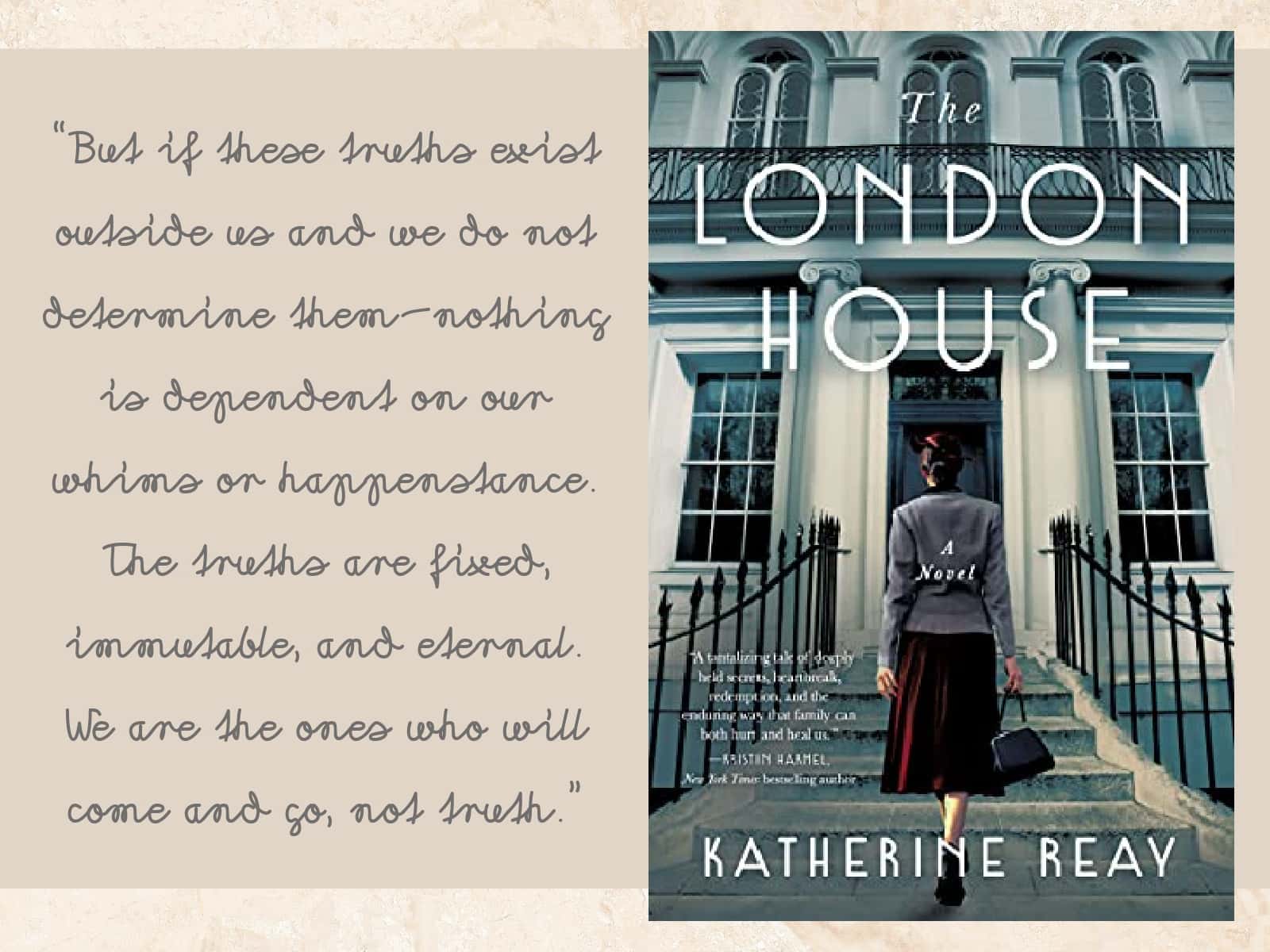
Black Cake, by Charmaine Wilkerson: Siblings Benny and Byron have been estranged for years, but when their mother passes away in their hometown in Southern California the siblings reunite to receive their strange inheritance: Eleanor Bennett has left behind a black cake made from the family’s storied recipe, along with a video recording offering instructions on when to eat the cake and informing the children of her (and their) history—one that reaches back decades and across nations.
Through the message, Benny and Byron learn about a strong-willed young surfer named Covey who grew up in the West Indies, the daughter of a Chinese immigrant. But who is Covey, and what does she have to do with their mother, or with the long-lost sibling whose existence they are only learning about now that their mother is gone?
The novel unfolds through messages and flashbacks, across generations and characters whose stories are told in brief chapters that read almost like stand-alone short stories. Slowly the picture forms of this broken family whose matriarch is desperate to bring about reconciliation and redemption, even in her absence. Food will be involved, and also history, a plethora of cultures, the exposing of many secrets, and the shedding of far too many harmful assumptions and misunderstandings.
A theme throughout the books is the shortcomings of labels and straightforward categories, as characters learn to blend seemingly incompatible parts of their identities into their whole, true selves—then struggling to reconcile those wholistic selves with who culture wants and expects them to be. The book itself refuses to be boxed in, dipping in and out of narrative style, genre, and theme. Expected tropes are broken time and again, and just as I came to an understanding of a character’s motives or history, that perspective was tipped on its side. I tend to love this eclectic format in a book, and while it serves a purpose here, the vast assortment of stories that comprised this literary salad was a little too much to keep track of. I found myself wishing the story was a tad more straightforward. And while I appreciated the inclusion of many, MANY themes (including all the hot button ones, like racial injustice and police brutality, LGBTQ identities, environmentalism, immigration, rape, adoption, feminism, and intersectionality), it was an awful lot for a single book, too much to do any one issue justice.
The variety of cultures presented in the book made for some challenging reading (many terms and ideas I was unfamiliar with), but that is also the book’s strength. I learned a lot about Caribbean culture and especially about life as an immigrant to Europe and then to America from that part of the world. This was enlightening, as were the experiences of these characters who come from the same family but whose varying skin tones make for very different lived experiences. This aspect of race is not the most prevalent part of the novel, but it is an important one that I felt the author handled well—making it part of the story, while not letting it take over.
This is a very sad book, one that reminded me quite a bit of other favorites like Ask Again, Yes, and A Place for Us—two other family stories of brokenness and redemption that comes just a little too late, but is beautiful in the making. I felt so deeply for the characters in this book, even when their choices left me baffled and their inabilities to connect had me wanting to throw the book across the room. I definitely loved how things wrapped up for them in the end. It’s not a perfect novel, but a very worthwhile and creatively told story. The abundance of discussable portions would make for great book club fodder.
My Rating: 4.25 Stars (That fantastic cover earned the extra quarter star!) // Book Format: Kindle
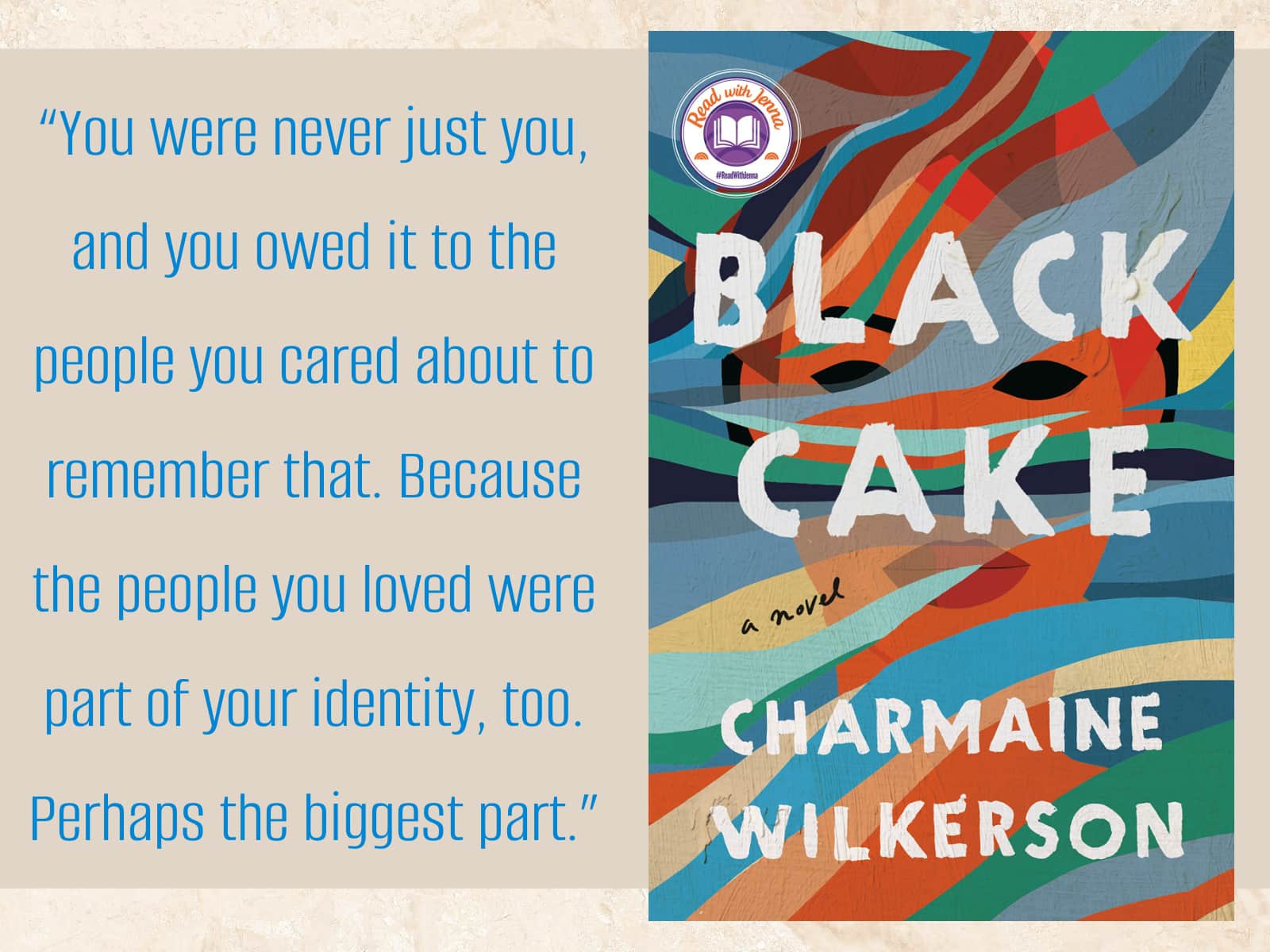
Have you read any of these titles? What did you think? What have YOU been reading lately?
Thanks for your thorough reviews! I always come away with some ideas for myself and my kids. I appreciate that you point out any “hot button” issues/themes the books may have in them (and whether it adds anything to the plot).
I LOVED This Tender Land! Ordinary Grace was just okay for me – I think I needed more plot. Or maybe the characters in Tender Land were more endearing?
Thank you for your kind words, I’m glad you find my reviews helpful. It’s interesting that people really tend to favor one or the other of the two Krueger books. They’re different, but I loved both (but I did like Ordinary Grace more).
You asked! We differ a bit this time…I have read 3 of these. For This Tender Land, I had LOVED Ordinary Grace and so looked forward to this one, but it wasn’t the same. I guess odysseys aren’t my thing. It did remind me very much of The Lincoln Highway, but that wasn’t my favorite, either. I think there was a believability factor that got me—I know these aren’t meant to be totally realistic, they have a bit of storytelling magic, but still—it kept tripping me up.
I also read The Maid and I was one of the ones that loved it! Yes, Molly was terribly charming and sweet and I could relate to her a little bit. I just was rooting for her all the way. I liked her style. It was frustrating when she couldn’t read people correctly and got it so wrong, but I KNEW it was going to end happily and it soooo did! In some ways it reminded me of an old movie, like from the 40s. I liked the innocence.
Black Cake was just all over the place, I couldn’t connect, it wasn’t what I was expecting. I didn’t DISLIKE it either, but I wasn’t sure what I was supposed to get out of it; that said, I did learn new things from it.
You asked what we’re reading—I just finished The Unseen World, by Liz Moore. Wow, what a book! Loved every minute of it, I was so engrossed in the story! Everything interested me, and the little girl main character was really memorable. Artificial intelligence, a daughter being brought up and taught by her father in a very unconventional way, then having to go to school in 8th grade and being woefully unprepared (the adults were so clueless)—then there are secrets and codes and encryptions and a mystery involving who her father was….then he gets Alzheimers…. I couldn’t find a review of it on your site….
Have you read it?
Also, The Burgess Boys, by Elizabeth Strout, one of her earlier ones. Very DENSE book, and at first, way too much about the immigrant issues in a small Maine city….at the halfway point, I almost quit. But I was so glad I didn’t, because it all came together in the second half and was powerful, as only Strout can be. VERY good book! I had a book hangover afterwards and wondered what I could possibly read next….
Fortunately, The Love of My LIfe, by Rosie Moore, came in at the library, and it was so delightful, just as good as her Ghosted! I LIKE her style! Her books are sort of low-level mystery/thriller, but also love stories with happy endings! Somehow her writing and stories resonate with me and make them so easy to slurp up! They make me happy!
Thanks for sharing your opinions, even if we differ. I love hearing others’ impressions even when (especially when) we tend to feel similarly about books and don’t agree on a title (or three). I didn’t think odysseys were my thing either, but Lincoln Highway and This Tender Land proved me wrong. I do think I liked Ordinary Grace more than This Tender Land, too. I can totally see why you wouldn’t like Black Cake, it really is a lot. And I get how The Maid could be likable, just not for me.
The Unseen World and The Love of My Life sound great, adding those to my TBR! I read Burgess Boys years ago and didn’t love it, but I might feel differently now as my tastes have grown more literary. I also did that one on audio, and I think Elizabeth Strout probably isn’t the best for audio.
I liked Black Cake but it was a lot!
I think I first learned about it from you. Thanks for the rec!
My pleasure! 🙌